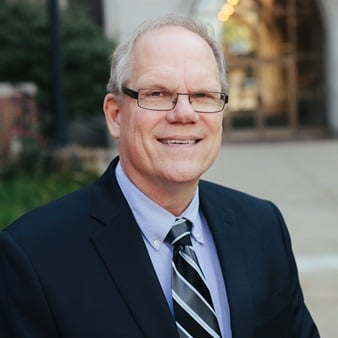
Daily Devotional | Nothing but the Blood
An old hymn asks, “What can wash away my sins?” The answer? “Nothing but the blood of Jesus.” In chapter 9, the author of Hebrews explains how Jesus changed, once for all, the way our sins are forgiven. Readers of Hebrews would have been familiar with what the Law prescribed regarding “regulations for worship” and “an earthly sanctuary” in the form of a tent or tabernacle (v. 1). These were the laws given to Moses, designed and ordained by God (Ex. 25:9, 40).
Up until this point, the tabernacle had represented God’s presence with His people. The tabernacle was divided into two rooms: an outer room called the holy place and another room behind a curtain called the most holy place (vv. 2–3). In the holy place, the priests tended the lampstand and a table with twelve loaves of consecrated bread (Ex. 25:23–40). The most holy place was closed to everyone except the high priest, who could enter only once a year (v. 7). No ordinary person was allowed in that sacred place.
This helps us better understand why the Law’s sacrifice could not solve our sin problem. These regulations emphasized humanity’s separation from God. They were also “not able to clear the conscience of the worshiper” (v. 9).
Jesus “came as high priest of the good things that are now already here” (v. 11). He carried out His ministry in “the greater and more perfect tabernacle that is not made with human hands.” Jesus did not come into God’s presence with a sacrifice of bulls or goats. Instead, He “offered himself unblemished to God” (v. 14). Jesus is God’s ultimate answer to the question of our sin. How can we come into God’s presence with a clear conscience? What enables us to freely serve the living God? Nothing but the blood of Jesus!
What limits did the worship regulations and design of the tabernacle place on an ordinary person’s approach to God? How did Jesus change that for us?
Lord Jesus, as we read in today’s passage about our redemption by Your blood, we bow down before Your sacrifice and pray the words of the hymn writer, “This is all my hope and peace: nothing but the blood of Jesus” (Robert Lowry, 1876).
About the Author
John Koessler
Dr. John Koessler is Professor Emeritus of Applied Theology and Church Ministries at Moody Bible Institute. John authors the "Practical Theology" column for Today in the Word of which he is also a contributing writer and theological editor.
View More